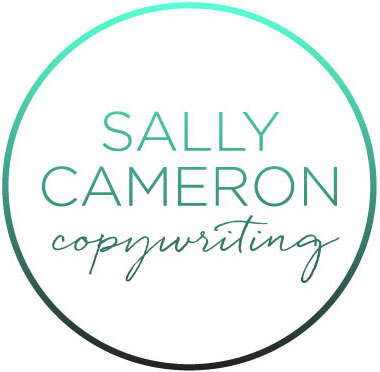“It is the chiefest point of happiness that a man is willing to be what he is.”
― Desiderius Erasmus
Type “introvert definition” into google and you get, “a shy, reticent person.” This definition is flat-out wrong, and a telling example of the general confusion (and often-negative connotations) around what it means to be introverted. Introverts are very often maligned and misconstrued; deemed (mostly by well-meaning but misunderstanding extroverts) as cagey, disengaged, anti-social and – at worst – selfish.
In her book, The Introvert Advantage: How to Thrive in an Extrovert World, author Marti Olsen Laney, Psy.D, describes introversion as, “…a type of temperament. It is not the same as shyness or having a withdrawn personality, and it is not pathological. It is also not something you can change. The strongest distinguishing characteristic of introverts is their energy source: Introverts draw energy from their internal world of ideas, emotions, and impressions. They are energy conservers. They can be easily overstimulated by the external world, experiencing the uncomfortable feeling of ‘too much’… they need to limit their social experiences so they don’t get drained.” Now that’s a better definition.
Extroverts, conversely, are, “…energised by the external world – by activities, people, places, and things. They are energy spenders.”
I spent my teens and early twenties battling with my introverted tendencies. I often asked myself:
- Why do I prefer reading at home rather than going out with my friends?
- Why do I struggle to make small talk with strangers?
- Why am I completely spent after any extended social engagement?
- And, the all-encompassing biggie, what the heck is wrong with me?
Today, we most definitely live in an extroverted world. This makes sense because extroverts outnumber introverts three to one. They also happen to be a lot louder! In all seriousness though, we’re conditioned from a very young age to be social, confident, outspoken and to strive for positions of leadership and power.
In her book, Quiet: The Power of Introverts in a World that Can’t Stop Talking, author Susan Cain writes, “Introversion – along with its cousins sensitivity, seriousness, and shyness is now a second-class personality trait, somewhere between a disappointment and a pathology. Introverts living in the Extrovert Ideal are like women in a man’s world, discounted because of a trait that goes to the core of who they are. Extroversion is an enormously appealing personality style, but we’ve turned it into an oppressive standard to which most of us feel we must conform.”
But, the world needs introverts. Why?
- We’re formidable listeners. And in a world that can’t stop talking, the ability to really listen, analyse and interpret complex information is extremely powerful
- We’re independent and self-sufficient, doing our best work alone rather than relying on a group
- We have a rare ability to concentrate for extended periods, retreating inwards to our own zone of genius
- We’re very self-reflective (often overly critical), meaning we are constantly striving for self-improvement
- We’re responsible, studious, dependable and considered
- We offer creative, out-of-the-box thinking – particularly when allowed to work in solitude
- Contrary, perhaps, to popular opinion, we make great and very loyal friends; tending to foster a small number of long-term, very-close friendships rather than a big group of acquaintances
Proof that we need introverts? Take a moment to imagine the world without Albert Einstein, Abraham Lincoln, Mahatma Gandhi, Bill Gates, Rosa Parks, Thomas Edison, Eleanor Roosevelt, J.K. Rowling and Clint Eastwood. I particularly love this quote from Gandhi, who is proof that you can be an introvert and an effective leader. He said, “In a gentle way, you can shake the world.”
It was Marti Olsen Laney’s book that finally enabled me to declare, “I’m an introvert – and proud of it.” And this acceptance has since informed so many of my professional and personal choices. Suspect you might be introverted too? Check out this list, and see how many indicators you identify with.
Unsurprisingly, introverts tend to struggle in the traditional, 9 – 5, corporate environment. These days, this usually includes:
- A constantly-noisy, open-plan office, in which everyone is accessible at all times (hell on earth for quiet, focused, solitude-seeking introverts)
- Obligatory meetings and enforced team work (there’s no ‘I’ in ‘team’, guys!)
- An expectation of socialisation outside of work (we’ve just spent 5 full-on days together and now you want to go out for drinks?!)
This all works wonderfully well for extroverts, but is incredibly stifling and exhausting for introverts. So, with the rise of the online world and the ability to work remotely, many introverts are moving away from 9 – 5 life and instead embracing the world of freelancing and solopreneurship.
Why is this such a good fit?
1. Solitude
Introverts crave alone time and tend to do their best work independently. As a freelancer, you are free to brainstorm, plan and work on your own time – and, crucially, in your own way. Working from home also means complete control over your working environment, with introverts tending to prefer a silent, minimalist and uninterrupted work space.
2. Creativity
Largely, introverts are a creative, analytical bunch. Freelancing gives you the ability to pick and choose the projects that most excite you – providing much-needed opportunities to analyse, problem solve, think outside the box and innovate. Know any freelance writers, designers or developers? They’re probably introverted.
3. Control
Ultimately, one of the biggest benefits is having the control to craft your career in a way that aligns with and takes advantage of your introversion. Freelancing gives you the freedom and flexibility to choose where you work, for whom and when – conserving your much-needed energy for the projects that really matter to you and where you can deliver most value.
Ultimately, the key takeaway is this – if you’re an introvert, you’re awesome exactly as you are. So, don’t go changing. Instead, give yourself permission to make professional (and personal) choices that allow your introverted brilliance to truly shine.
Are you an introvert? If so, how has it impacted your career?
+++
Want to dive deeper into this subject? Check out:
- The Power of Introverts – TED talk by Susan Cain
- 23 Signs You’re Secretly an Introvert – on The Huffington Post
- The Introvert Advantage: How to Thrive in an Extrovert World by Marti Olsen Laney, Psy.D
- Quiet: The Power of Introverts in a World That Won’t Stop Talking by Susan Cain
- Charge Up: Build a Business and Manage Your Energy with Your Introversion Superpowers – an eBook by Claine Deane and Allie Lehman
- The Business of Introverts – a blog by Kathryn Hall





14 Responses to Introversion and freelancing: a match made in heaven?